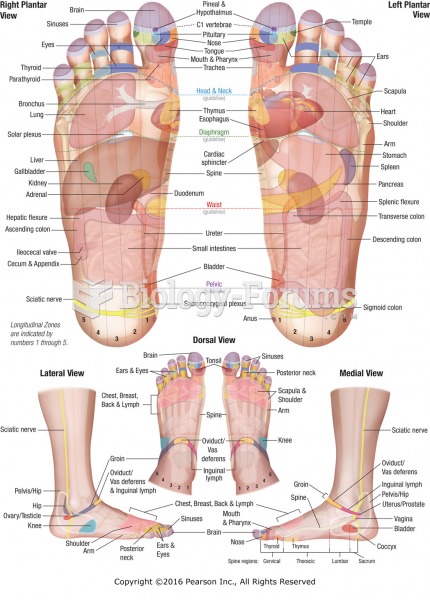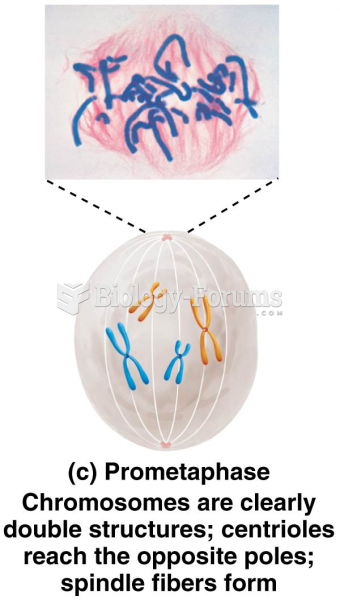|
|
|
Certain chemicals, after ingestion, can be converted by the body into cyanide. Most of these chemicals have been removed from the market, but some old nail polish remover, solvents, and plastics manufacturing solutions can contain these substances.
More than 30% of American adults, and about 12% of children utilize health care approaches that were developed outside of conventional medicine.
Glaucoma is a leading cause of blindness. As of yet, there is no cure. Everyone is at risk, and there may be no warning signs. It is six to eight times more common in African Americans than in whites. The best and most effective way to detect glaucoma is to receive a dilated eye examination.
Illicit drug use costs the United States approximately $181 billion every year.
There are 60,000 miles of blood vessels in every adult human.







